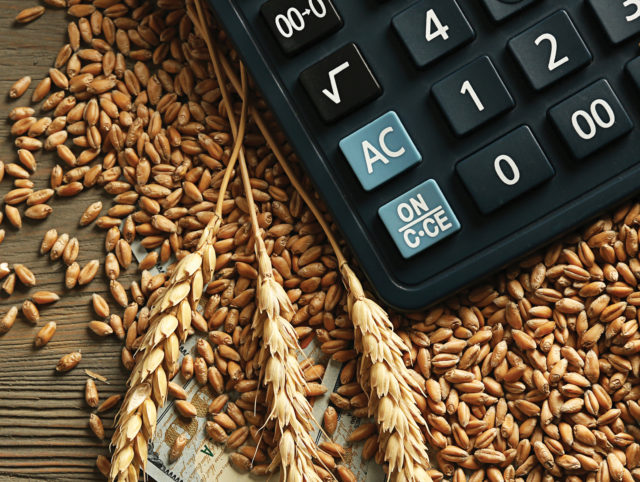
By Paul Kuntz
When times get lean, we need to be efficient. But isn’t the goal to be efficient all the time?
As our operations become more profitable, we often lose efficiency. We justify purchases that we really do not need. We justify extra labour. We generally make poorer business decisions. As long as the cash keeps coming in, we are fine. It is when there is decline in price or production, or both, that we run into trouble.
The first step in measuring efficiency is having a realistic income goal. In certain cases, this means not using your historical average. There are areas in Western Canada where the past three years have been record-setting. I do not think it is a good idea to base the future income on those results. Conversely, certain farmers have suffered in the past three years with no moisture. It is also not wise to base the future on that. You need to come up with a realistic number.
From there, you need to measure all cash that leaves your bank account. This includes loan payments, all expenses and living costs. You can measure this as a total number or a per unit number. For example, you may need $300/acre to pay all the bills. Or you might need $900/cow to pay all the bills.
If this number is too high, the first recommendation from most experts is that you need to expand. If you had more acres or more cattle, the number would be lower. I am not going to argue with that Grade 6 mathematical query. It is correct that the break-even number will go lower if you increase the units. I challenge you to look deeper rather than just getting bigger.
Look at all the cash that leaves the farm. Can you justify it? Is there any way to reduce the cash outflow? Look at your machinery and the debt you are carrying. Could your farm operate with less value in equipment? I often have conversations with farmers who try to justify a bigger, newer combine, drill or tractor. Perhaps you should focus on keeping what you have. Or maybe even selling what you have and getting something that costs less.
That type of thinking is almost considered radical today. Everyone wants to be bigger. Size is not the measuring stick, it should be profit. Unfortunately, we do not discuss our operations in those terms. It would different if described our farm as having a $240/acre break even or $450/cow. Instead we proudly boast, “I farm 10,000 acres” or “I have 500 cows.” If the next person only has 7,000 acres or 375 cows, there is an assumption of inadequacy. How big your operation is does measure profit or efficiency; all it measures is the size of the farm.
Many years ago, one of my clients shared a quote: “You need be good before you are big.” That has always stuck with me. If your 3,000-acre farm is failing, making it 5,000 will not make it better. Most likely it will increase your level of failure.
There are certain situations that require a larger farm base. One is your cost of land ownership. If you have bought land recently, you will have hefty payments per acre. You may need to lower that payment by spreading it out over more acres. For example if you bought a quarter section and the payments are $120/acre, if you were to rent 400 more acres at $50/acre, your total cost per acre for the 400 rented and 160 owned would be (400 x $50=$20,000) + (160 X $120=19,200)/560) $70/acre. So, I am not saying it never pays to expand the aces. I am saying you need to look closer.
We also need to be efficient on the income side. How much more per acre could we produce? How much more could we sell our grain for? How much bigger could we get our calves before we sell them? How much better could we do at marketing our livestock? All of these aspects will increase revenues. With the size of farm you have now, you need to concentrate on these areas and get them as close to perfection as you can before you look to expand.
I do not know where commodity prices are going in 2020 and beyond. There seems to be a consistent theme among experts that we should expect a little less than we got last year. Regardless of where the markets go, waste is waste. We need to be efficient. Not just when we need to be, but all the time. We are stewards of a small part of mother nature and we should not take that for granted. Make the most out of the resources we are in control of. Ensure good practices today so that we can enjoy the resources forever. I believe this is the most important element of agriculture.










